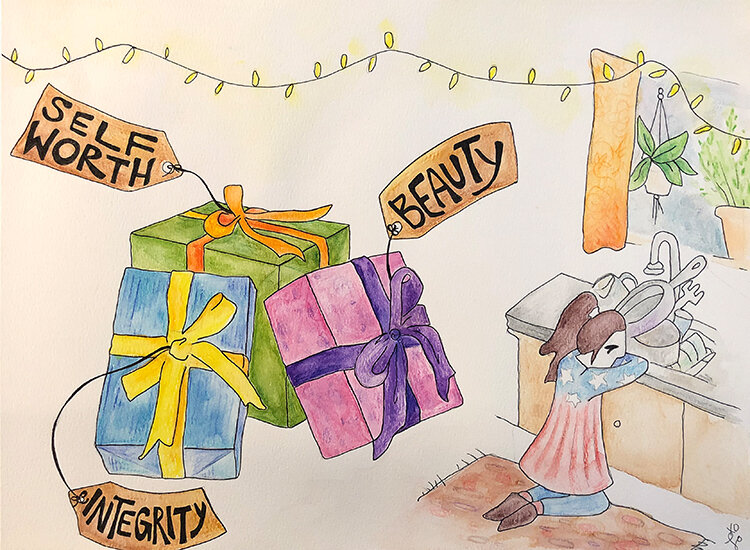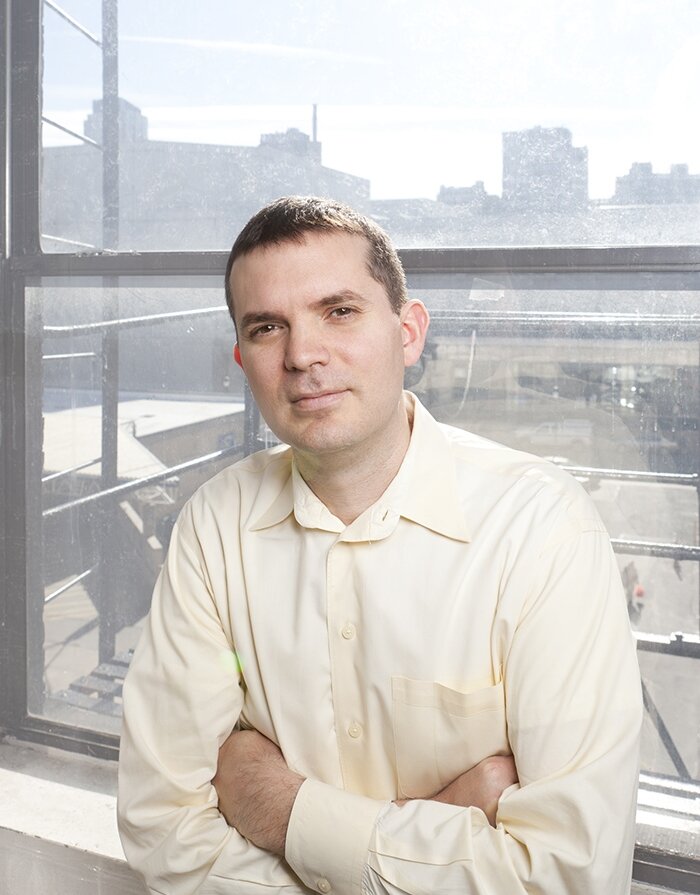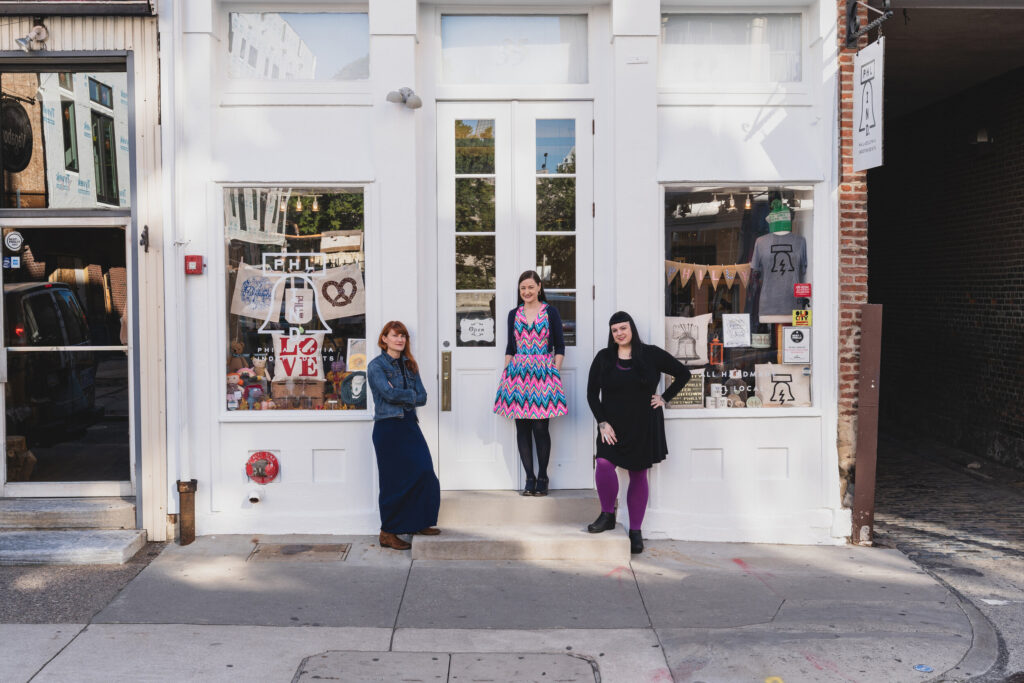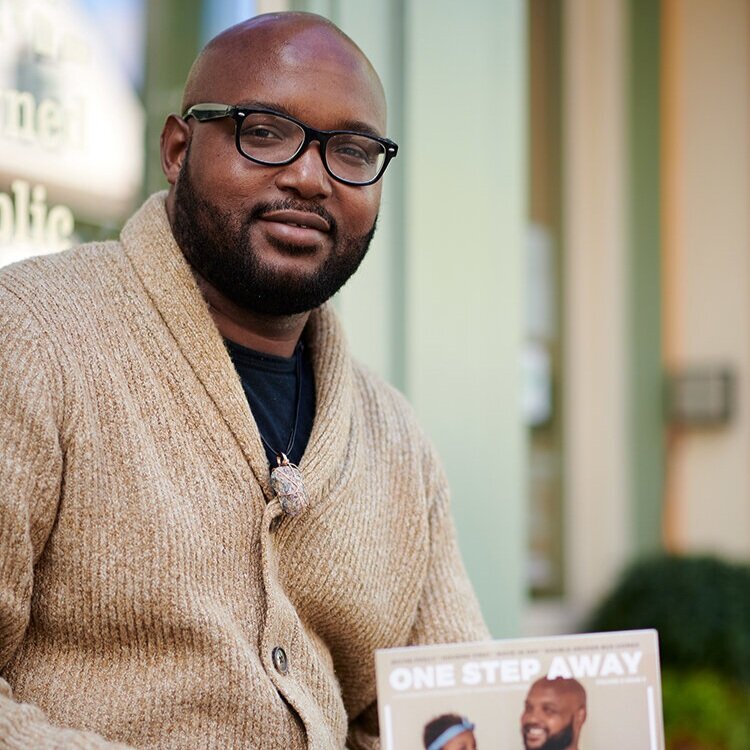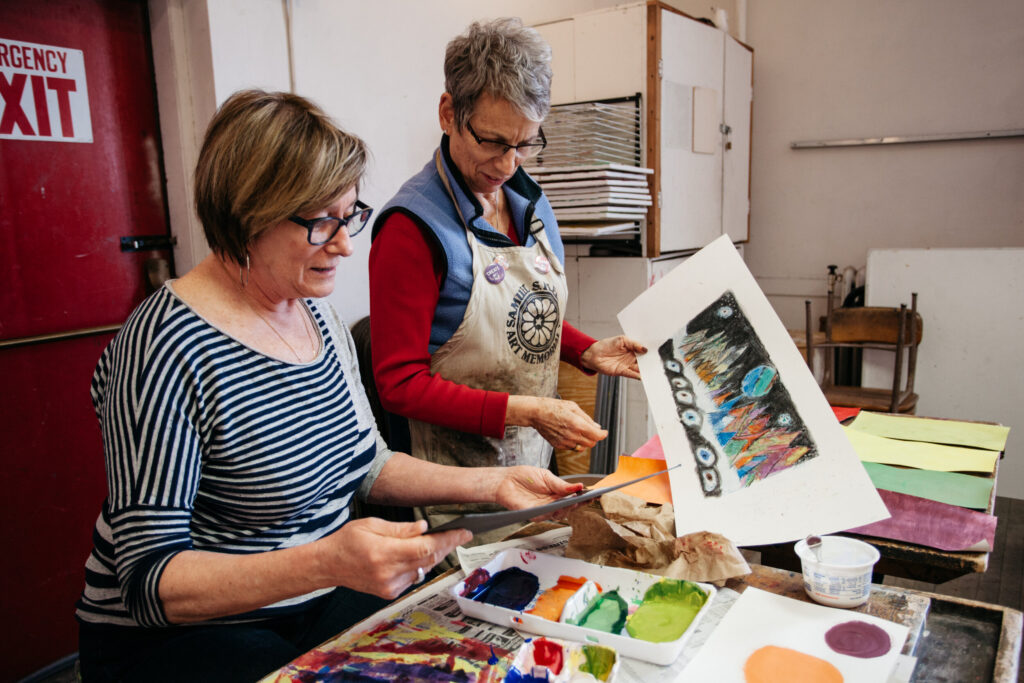In my work as a home consultant, I see firsthand the need for reducing and rethinking our use of “self-care” products, and this means addressing the immense social pressures involved, especially for women. The wellness industry, in particular, has blurred the lines between commercialism and self-care, hijacking our conceptions of dharma, enlightenment and self-worth by selling us useless, smelly, expensive products. As such, it should be examined and scrutinized. At a young age, girls slide into the role of desired object, learning to construct their self-image in accordance with American commercial values. Later in life, serums and creams are sold to exploit the aging process. We hold on to the socially constructed concept of beauty by praying for a healthy glow and tight skin. Heaven forbid our bodies change. We could redefine our conceptions of beauty, but there is a fear that no one will love an old, wrinkly spinster. Through all of this, the wellness industry is the secret friend holding our hands as we slather and pluck, convincing us that the snake oil will help us transcend our disappointment with what is actually our natural and innate beauty.
This feeling of inadequacy affects women much more than men. However, we all reap what corporate America sows. We contribute to the garbage harvest by purchasing products as a form of escape from the hell that our nonsense junk-centered society creates. We chase the excitement of purchase and the possibility that magic creams and indestructible drill bits will set us free and provide contentment. We are bombarded with messages attempting to convince us that we are One Product Away from being happy.
Actual self-care is an action, and is in opposition to all forms of commercialism; it is not something you can buy. Self-care is scrubbing the shower rather than filling it with countless products we can only hope will “work.”
Self-care means preparing healthy food and creating a place that makes wellness possible. We have been brainwashed to think that we need manufactured products in order to be good to ourselves. Can we simply be good to ourselves by eating an apple instead of a bag of chips? Cleaning our kitchen and organizing our closets is self-care, not buying a new outfit or oil diffuser. We have to be willing to dive into the moment and see what beauty lays before us. We also want to lean into choices that make us proud and show that we value ourselves. Eating well, committing to the spaces where we live and work, creating positive new habits—these actions are the key to true self-care and take us to places from which we can inspire, help and be a force for good. Start by being the role model for your children that you needed as a child.
The idea that we can buy ourselves to heaven has left our homes a cluttered mess. It doesn’t make any sense to blow our money on “moon powder” that makes us one with the universe at the expense of simplicity and charity. Addressing the needs of the home is a basic way of taking care of ourselves. It does not cost money, but it might cost the pride of thinking we are above cleaning. It could also mean the realization that no one is going to save us from our own dirt and grime. You can’t buy humility.
When we free our minds from the commercialism that whispers to us to buy, our bodies will follow. When we work with the heart, we understand there is more to life than ourselves; we connect to a deeper current of caring for all life. The current beauty paradigm only exists because of the exploitation of our fears. Can something this corrupt be beautiful?
Our homes are places that remind us that habit and ritual bring freedom. In caring for our homes, we directly create spaces that save us from guilt and future drudgery, which are the very feelings the wellness industry preys upon. Healthy habits make us feel better. With time, we regain a sense of pride and purpose, and can consciously and creatively contribute to our immediate surroundings. This energy can’t help but push outward to the benefit of family and community. Caring for others is another form of self-care.
Our refusal to participate in destructive social norms can be part of a greater societal healing process. How have we fallen so far from grace and natural beauty that we turn our gaze from the mistreated workers in packing facilities? What if we cared deeply about where our precious products came from—about who suffers in making sure our toenails are the perfect shade of burgundy? Unfortunately, it is a daunting task to fully understand the damage we create by simply living. Simple living is a different approach; it requires less, and less is more.
Nothing we buy will satisfy our desire to be whole and one with creation. What we do have is the ability to co-create spaces of well-being. This looks different for everyone, but in general, it relies on self-responsibility and participation within community. You won’t find that at a spa, but you might find it clearing the table and loading the dishwasher. Self-care is an action.


